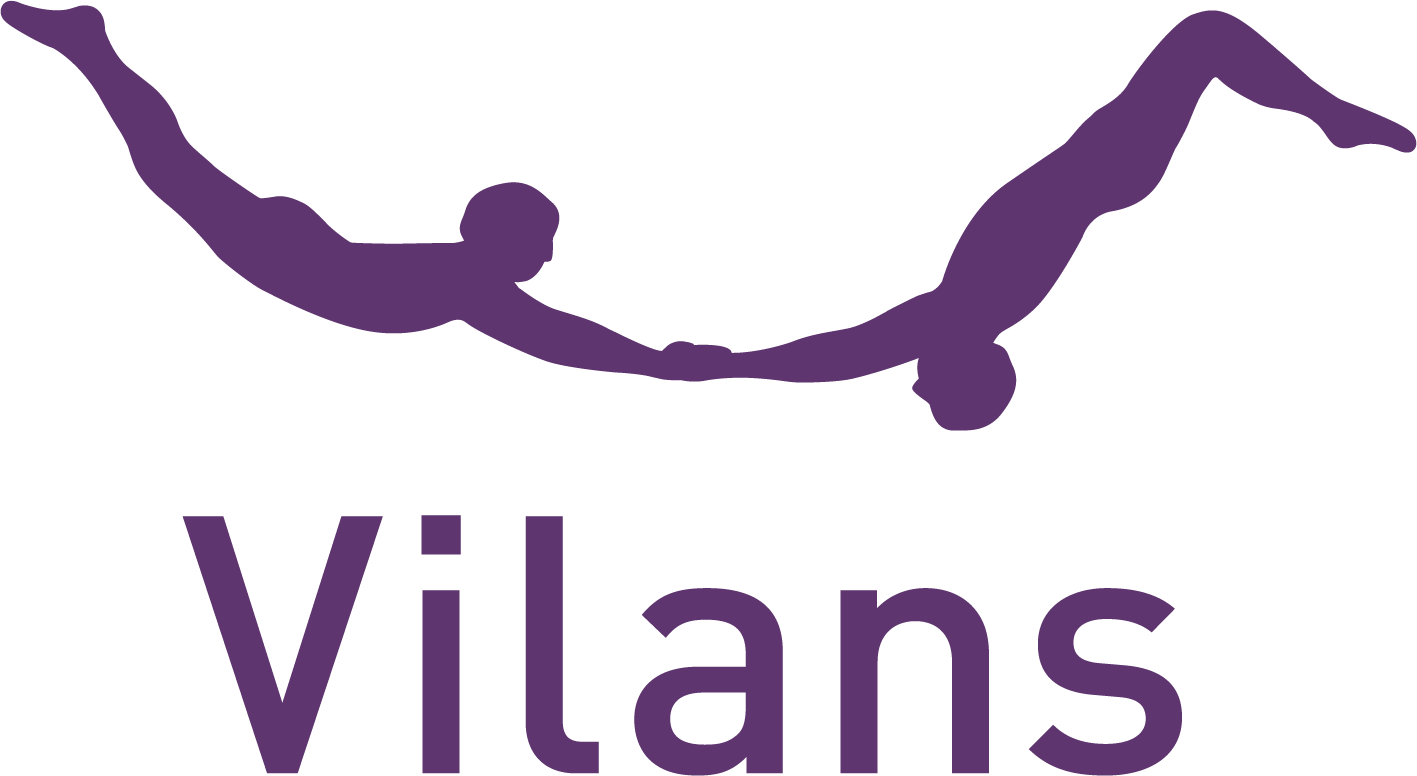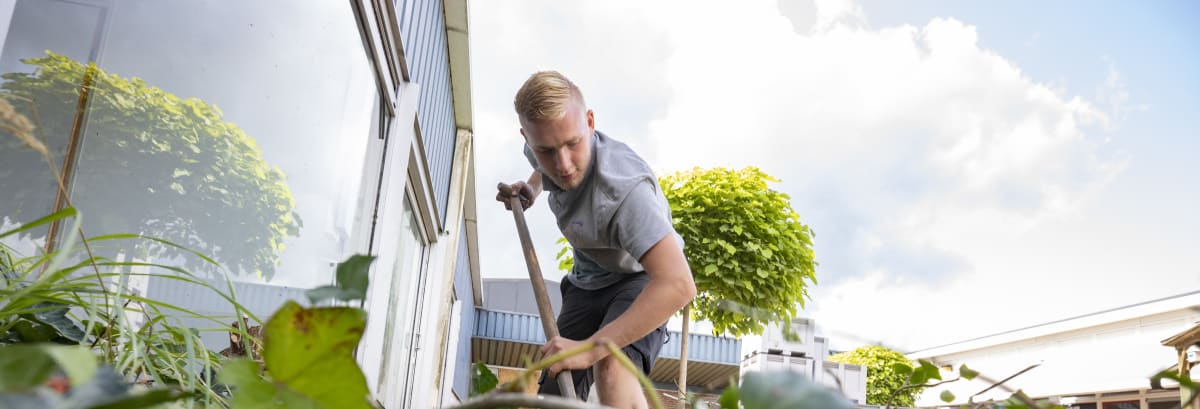Portrait series Reablement: Nursing with your hands behind your back at Cicero Care Group
Published on: 14-02-2024
Older adults are living at home longer and want to be as self-sufficient as possible. Reablement has therefore become a popular topic in the Dutch nursing and home care sector in recent years. Whether you see it as old wine in new bottles or a modern development, the principles and care methods are focused on autonomy, self-management, and self-sufficiency for older adults, making elder care more person-centred and lifestyle-oriented. But how can you best support clients in (re)gaining (part of) their self-sufficiency? And how do you, as a care worker, adjust to working ‘with your hands tied behind your back’? In this portrait series, we introduce you to care organisations that work towards Reablement. We start with a nurse from care organisation, Cicero Care Group.
Why do you think it is important to work on self-reliance?
‘When people keep doing things themselves, it increases their self-esteem and autonomy. And they gain a more positive self-image. If we work together on their self-reliance, they discover that they can do a lot themselves despite their limitations. I find that important, because I see that people then have a more positive outlook on life, are more adventurous and more open to activities. There is also a physical benefit, because people stay fitter this way: their bodies become less stiff. People go out more and meet other people. Basically, Reablement and more self-reliance just make clients more human again.’
‘Reablement and greater self-reliance often make clients more human again: more autonomous, fitter, more adventurous.’
What is it like for you to work like this?
‘Well, it provides me with a lot of job satisfaction. I’m 50 years old and work 40 hours a week. And I can go on for years to come. By consciously working from the idea of Reablement, I experience more peace in my work. I am no longer constantly looking at the clock or ahead at how many people I still have to see that day. I can give my attention much more specifically to the residents I see.’
What inspires you to encourage self-reliance?
‘I was never really conscious of this before, but in retrospect, I learned it at home because my brother has been in a wheelchair for a long time. He may be physically limited, but he can still make his own decisions: I have thought that was “normal” from an early age. I remember a time when he was being helped to get dressed. He pointed out that his underwear did not fit properly. So then the clothes were put on again until he said they were right. He had complete control in that: he couldn’t do it himself, but he could indicate it himself. And that was respected. That spoke to me and that’s how I started approaching people instinctively.’
What is your experience in your work regarding Reablement?
‘I notice that (self)confidence is very important. Even with light support, residents often gain (back) the confidence to do things themselves. A client with Parkinson’s, for example, I give a hand to get out of bed, but I don’t pull. The idea of my hand helps her pull herself up. It works the same way with walking. And if she is uncertain, she can ask for my arm, but my hand on her back is usually enough. In addition, it’s also helpful to distract her a bit. By chatting with her while she washes her face independently, for example. Before she realizes it, she even washes more than her face herself!’
‘Self-confidence is very important. Even with light support, residents gain (back) their confidence to do things themselves.’
How do you encourage self-reliance?
‘Working ‘with my hands behind my back’ is very important, but I also have to get used to it. I really focus on the individual client and always try to take into account what is possible at that moment. I used to work in palliative care with people who were so dependent that it was almost impossible to keep my hands behind my back. What doesn’t work, it doesn’t work. But I also saw people who wanted to remain as self-sufficient as possible until the end of their lives. Even if they could only do small things themselves, it was immensely important to them.’
How do you do that, “with your hands behind your back”?
‘By taking a good look at who you are dealing with, what they can do, and by encouraging people to try things for themselves. For example, I recently visited a resident a little later than planned… and it turned out she had already dressed herself! She did say that she had not yet put on the sunscreen, because she said she could not. Because I know better, I handed her the cream and she put it on anyway. That first push helps then, and in between I give compliments, which also stimulates. I am also thinking about setting up a discussion group with residents who require level 4 or 6 home care to discuss how they can be or become more self-reliant, because that is also what Reablement is about. I think that would be a great way for residents to encourage each other and give each other confidence that more is possible.’
How do you put the focus on self-reliance with your team?
‘Within our team we find it important that we focus on self-reliance in a unified way. So we always stay in touch with each other, for example in the handover. If I notice that a resident performs certain tasks for me, but not for a colleague, we discuss it with the team. I recently said to a client ‘You must think I’m strict’ after I encouraged her to get out of bed, wash herself and walk by herself. So a conversation ensued, in which she told me that she did find it easy when my colleague did things for her. I told her about the benefits of self-reliance, and discussed the situation at the handover with colleagues: it’s important that we all encourage her autonomy and self-reliance.’
What tips do you have for colleagues?
- Keep it light-hearted and keep it small. You already stimulate self-reliance by offering a washcloth, for example.
- Treat residents like any other human being. The behaviour consultant once pointed out to us that we did not always greet our clients calmly and tell them what we came to do when we walked in. The consultant observed that the resident for whom we asked for advice was pinching us as a startle response or lack of trust. Now we are more careful that the resident always knows what is happening, and they no longer pinch us. Now there is room to look at self-reliance.
- Always look closely at the person sitting in front of you: what can this person do at this moment, and what can’t this person do? At another moment – that may just be different. Always keep moving along with the client.
Read more about Reablement






